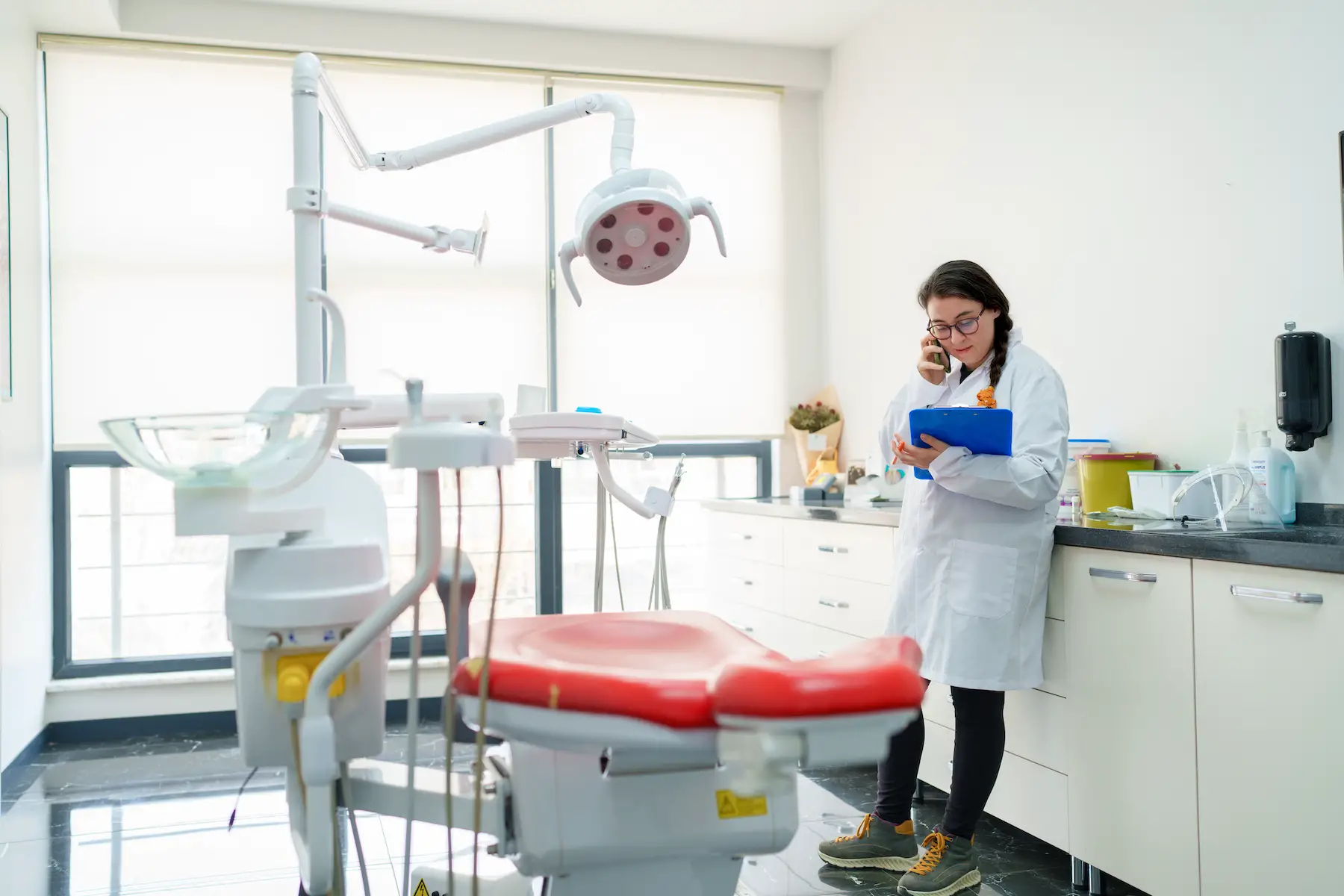The Swiss healthcare system combines public, subsidized, and fully private schemes to create an extensive network of highly qualified doctors and hospitals. With a global reputation for being outstanding, it’s no surprise you can find some of the most advanced medical facilities and shortest patient waiting times in Switzerland. However, quality and convenience comes at a price, as the Swiss healthcare system is also one of the world’s most expensive.
Read on for more about the following topics:
- Overview of healthcare in Switzerland
- How much does healthcare in Switzerland cost?
- Swiss health insurance
- How to register for Swiss healthcare as an expat
- Private healthcare in Switzerland
- Swiss doctors and specialists
- Women’s healthcare in Switzerland
- Children’s healthcare in Switzerland
- Dentists in Switzerland
- Swiss hospitals
- Health centers and health clinics in Switzerland
- Swiss pharmacies
- Mental healthcare in Switzerland
- COVID-19 in Switzerland
- Swiss long COVID support
- Physical therapy in Switzerland
- Alternative medicine in Switzerland
- What to do in an emergency
- How to make a complaint about Swiss healthcare
- Useful resources
Cigna Global
Enjoy peace of mind while living in Switzerland with Cigna Global’s long-term international health insurance plans (12+ months). Get tailored coverage, direct billing with many providers, complex case management, and global care on demand, with access to a network of 1.5+ million doctors, specialists, and therapists.
Overview of healthcare in Switzerland
What is the Swiss healthcare system?
Switzerland’s healthcare system is universal, meaning everyone there needs basic health and accident insurance (Soziale Krankenversicherung / Assurance maladie / Assicurazione-Mallatie) to receive treatment.

Unlike other European countries, the Swiss healthcare system is neither tax-based nor financed by employers. Instead, an individual’s contributions to Swiss health insurance schemes fund the system. Many people top up the basic cover with supplementary private health insurance. Switzerland has one of the largest private healthcare markets in the world, with plenty of freedom of choice and competition.
Who manages health insurance and care in Switzerland?
The country’s 26 cantons largely organize healthcare across Switzerland. The health ministers from all cantons form the Swiss Conference of the Cantonal Ministers of Public Health (GDK). This organization aims to promote cooperation and implement standard policies between cantons. The Federal Office of Public Health (FOPH) oversees this.
Who can access healthcare in Switzerland?
Anyone living in Switzerland can access the healthcare system as long as they have health insurance coverage. Residents and non-residents will need at least basic health insurance, which covers 80–90% of their healthcare costs. Many short-term visitors to Switzerland choose international insurance packages. Residents from the European Economic Area (EEA) can use their European Health Insurance Card (EHIC) to cover healthcare costs for short visits.
Does Switzerland have the best health care?
You can find very high-quality healthcare in Switzerland, ranked first on the 2018 Euro Health Consumer Index out of 35 European nations. It was the only country to score all green on accessibility and received praise for low infant mortality and high cancer survival rates. However, the researchers noted that the decentralized nature of the Swiss health system makes data collection challenging.
How much does healthcare in Switzerland cost?
Switzerland spends a lot on healthcare for its residents. According to 2020 figures, the country dedicates 11.8% of its gross domestic product (GDP) to healthcare, higher than the European Union (EU) average of 10.9%.
Healthcare can be very expensive for Swiss residents. Adults must pay the first CHF 300 each year excess for medical treatment, excluding maternity care. There is also a charge of CHF 15 a day for hospital stays. Insurance will pay up to 90% of the amount exceeding the excess. However, this is capped at CHF 700 per year for adults and CHF 350 per year for children.

Those with low incomes are entitled to reduced insurance premiums through supplementary benefits. These reductions are handled by the Compensation Office of each canton.
Swiss health insurance
Switzerland has around 60 registered health insurance companies, each offering the same benefits in their policies. Companies are obliged to accept anyone who applies, regardless of pre-existing health conditions. You can choose your own insurer and change company once a year if you give notice.
Some of the largest health insurance companies in Switzerland include:
The basic health insurance policy covers:
- Outpatient treatment by officially recognized doctors
- Emergency treatment
- A contribution to transport/rescue expenses
- Medicines prescribed by a doctor and on an official list
- Maternity checkups, tests, pre-natal classes, childbirth
- Abortions and gynecological checkups
- Vaccinations
- Rehabilitation after operations or illness
- Medical treatment when on short trips outside of Switzerland
- Some alternative therapies, like homeopathy, Chinese medicine, and chiropractic care
Each family member must be insured individually. Babies are included from birth, but to continue coverage, you must take out health insurance for your child within three months. Children don’t need to be insured by the same company as their parents. Once a child turns 18, they are officially responsible for their health insurance payments.
Suppose you are in Switzerland for less than three months. In that case, you may be exempt from the requirement for basic health insurance if you have an EHIC, your own private health insurance policy, travel insurance, or a company healthcare plan.
Helsana
Looking for an expat-friendly health insurance policy tailored to your needs? Helsana, the leading health and accident insurer in Switzerland, offers a variety of options for compulsory health insurance and more. Whether you need coverage now or just have questions about Swiss healthcare, contact Helsana today.
How to register for Swiss healthcare as an expat
The key to accessing healthcare in Switzerland is to register for health insurance. To do this, you must first register with your local Swiss canton. After that, you have 90 days from arrival to sign up with health insurance. You will need to provide:
- Valid ID such as a passport
- Swiss residence permit proving your right to be in Switzerland
- Proof of address such as a recent utility bill or rental contract
Once you have registered with a Swiss insurer, you will receive a health insurance card that you must present at all medical appointments. This proves to your provider that you are entitled to Swiss healthcare.
Private healthcare in Switzerland
You can take out optional supplementary health insurance at an extra cost from the same or separate insurer. Benefits vary between policies but may include:
- Orthodontic treatment
- Glasses and contact lenses
- Choice of doctor when you need treatment in hospitals
- Stays in a private or semi-private hospital ward

With private insurance, you can choose the amount of coverage you want to suit your lifestyle and budget. In general, the greater the level of coverage, the higher the premium.
Swiss doctors and specialists
You are usually free to choose your family doctor (Doktor/ Arzt / Médicin / Medico) in Switzerland, unless you have a very low-cost policy. The doctor can treat you and refer you to specialist treatment. Unless your insurance policy specifies otherwise, you may also consult specialists without a referral from your doctor and have this covered by your insurance.
You must book your appointment beforehand and give 24 hours notice if you need to cancel; otherwise, they can charge you for cancellation. Take your Swiss health insurance card when you visit the doctor.
Women’s healthcare in Switzerland
You can access a gynecologist in Switzerland through basic health insurance. The compulsory coverage also includes a number of healthcare procedures specifically for women, such as:
- Maternity care including checkups, ultrasounds, pre-natal, and post-natal care
- Cervical cancer screenings
- Breast exams
- Regular checkups, including urine and blood tests
If you are pregnant in Switzerland, you can see your general doctor, gynecologist, or midwife. Births take place in hospitals, birthing centers, or at home. You can search for gynecologists on the doktor.ch website.

Contraception is readily available, including emergency contraception. However, basic insurance does not cover some medications, such as the pill and the intrauterine device (IUD).
In Switzerland, it is legal to have an abortion up to 12 weeks after conception without a doctor’s consent. However, from the 13th week, a doctor must confirm that the pregnant person’s physical or psychological health is at risk due to the pregnancy.
Children’s healthcare in Switzerland
Unlike in many countries, Swiss family health insurance does not include children, so they require separate coverage. Once insured, you can choose your child’s pediatrician, and they should be a Swiss Society of Pediatrics member.
Basic health insurance will cover:
- Access to pediatric services
- Vaccinations
- Basic medical treatment (children are exempt from the CHF 300 yearly excess)
- Treatment in pediatric hospitals
The FOPH runs a preventative health program in Switzerland, delivered at the cantonal level through schools. This focuses on sexual health, physical activity, and early detection of health conditions. There are no mandatory vaccinations for children in Switzerland. However, basic health insurance covers several vaccinations, including:
- Whooping cough
- Diphtheria
- Tetanus
- Hepatitis B
- Measles, mumps, and rubella (MMR)
Dentists in Switzerland
You can find a Swiss dentist (Zahnarzt/dentiste/dentista) in either a private practice or public dental clinic. Basic health insurance does not cover most dental care, so it can be very expensive without private coverage.

Adults must pay for their dental checkups and treatment. However, basic Swiss health insurance covers treatment for problems caused by severe, unavoidable illnesses. School dentists will check children’s teeth free of charge annually; however, parents must pay to treat conditions resulting from dental decay. Some local authorities may subsidize the cost, but most people take complementary insurance to cover dental costs.
Swiss hospitals
Swiss hospitals (Krankenhaus/hôpital/ospedale/ospital) are usually designated by a sign with a white H on a blue background. There are three types of wards: general, semi-private, or private for one patient only.
For health insurance to cover your hospital treatment, you must use one local to your canton. You can find this in the GDK online hospital list (PDF). Basic health insurance covers medical and nursing care, along with outpatient follow-up. However, you must pay CHF 15 per day for these costs.
Health centers and health clinics in Switzerland
Switzerland has an extensive network of medical centers, polyclinics, and health spas that provide secondary care and specialist outpatient treatment. What is available varies across the individual cantons, and only a limited amount of medical care is covered by basic health insurance.
Check with your local cantonal authority for information on facilities in your region.
Swiss pharmacies
Pharmacies (Apotheke/pharmacie/farmacia), clearly marked with a green cross, are good places to get health advice and medicines. You must pay a small, one-off fee the first time you get prescription medicines from a pharmacy. This fee is to open a patient file where the pharmacy records all your medications. If you go to another pharmacy, you will have to do the same there; therefore, it makes sense to try to go to the same one each time.

Pharmacies are usually open from 08:00 to 12:00 then 14:00 to 18:00 Mondays to Fridays; they close earlier around 17:00 on Saturdays.
You will have to pay a deductible on prescriptions, which is:
- Up to 10% on generic medicines
- Up to 20% on brand-name medicines
Insurance does not cover non-prescription medicine. The government provides information on supplied medical products in Switzerland.
Mental healthcare in Switzerland
In addition to ranking highly in general healthcare, Switzerland also scores well in terms of mental health provision. It has a much higher number of psychiatrists than other EU/EFTA nations at 52.7 per 100,000 inhabitants. There is also a high density of inpatient facilities and mental healthcare providers.
The first point of call for anyone dealing with mental health issues in Switzerland is their general doctor. They will assess and prescribe any necessary medication or further specialist treatment. Care is available through hospitals, medical centers, and clinics. Basic insurance covers some services, such as day treatment programs and visits from mental health nurses.

As of 1 July 2022, psychotherapy is covered under basic Swiss health insurance, provided the therapist is officially qualified. Supplementary health insurance adds a lot of mental health treatment options, including private counseling and health spa facilities.
COVID-19 in Switzerland
While COVID-19 is still present in Switzerland, the government has lifted all restrictions related to the pandemic as of 2023. The previously established rules included mandatory testing for travelers, mask requirements, and social distancing regulations. Some cantons may still have rules about what to do if you test positive for COVID-19 or think you might have it.
As of 2023, the Swiss government does not recommend COVID-19 vaccinations for the general public. However, they are still available for high-risk groups such as older adults or those with chronic illnesses. At-home tests are sold at pharmacies and grocery stores across the country. Note that insurance does not cover these unless carried out through your doctor.
Swiss long COVID support
If you are still suffering from COVID-19 symptoms months after infection, you could have what is known as long COVID. With this condition, health problems can stick around for months or years, including a wide range of physical and psychological symptoms.
As of April 2023, 38% of Swiss physicians said they had treated patients with post-COVID symptoms in the last month. The FOPH recognizes long COVID as a serious condition and channels funding into researching and treating it. For more information and resources, see the long COVID section of Expatica’s article on COVID-19 in Switzerland.
Physical therapy in Switzerland
Physical therapy, also known as physiotherapy, is relatively common in Switzerland, and you can find clinics dedicated to it across the country. Healthcare network Swiss Medical offers a map of physiotherapy clinics on its website. The physiotherapy association, PhysioSwiss, also provides a collection of physical therapy practices with over 5,000 currently listed.

Compulsory health insurance includes sessions with a registered physiotherapist as long as a Swiss doctor prescribes them. You can get up to nine physiotherapy sessions at a time, and they must start within five weeks of the doctor’s referral. The prescribed sessions will renew as needed.
Alternative medicine in Switzerland
The following types of complementary and alternative medicine (PDF) are covered under Swiss basic health insurance:
- Acupuncture
- Anthroposophical medicine
- Traditional Chinese medicine (TCM) pharmacotherapy
- Classical homeopathy
- Phytotherapy
For a treatment to be covered, it must be carried out by a qualified medical specialist. To find such a provider, you can check online to see if your therapist is listed in the Register of Medical Professions (MedReg).
It’s worth noting that chiropractic treatment is always covered (PDF) by Swiss health insurance, even if a general doctor did not provide a referral for it.
What to do in an emergency
Swiss basic health insurance covers emergency treatment. You can consult with any doctor or hospital directly in an emergency, even if you have restricted choice. They may ask you for your health insurance details, so always keep these with you.
For urgent medical treatment, go to the nearest hospital’s emergency room (Notaufnahme / urgences / pronto soccorso); most public hospitals have 24-hour urgent care departments.
For an ambulance, call 144, free of charge from any phone. Insurance will cover 50% (PDF) of the ambulance cost, although no more than CHF 500 per year if there is no immediate danger to life.
Other useful numbers to call free-of-charge in an emergency include:
- General emergencies: 112
- Police: 117
- Information service in German, French, Italian, and English: 1818
- Swiss Rescue: 1414
How to make a complaint about Swiss healthcare
In Switzerland, patients have rights granted to them by the government that dictate the way the healthcare system should treat them. For example, Switzerland guarantees healthcare equity meaning everyone should have equal access regardless of their identity or background.

When interacting with doctors, being informed about your rights as a patient is helpful. While these are generally the same across Switzerland, they can vary slightly by canton.
To make a complaint about a healthcare professional or institution, you must go through the canton where you live. Complaints are usually handled by the canton’s ombudsman (Ombudsmann / médiateur / difensore civico), and you can file a report anonymously online. For example, if you live in Zurich (Zürich), your complaint form is on the canton Ombudsman’s website.
For complaints related explicitly to medicinal products and medical devices, you can contact the governmental organization regulating these, the Swiss Agency for Therapeutic Products.
Unfortunately, getting a direct and timely follow-up to healthcare complaints in Switzerland can be difficult. You may have better luck going through a non-profit organization or even a lawyer if you’ve received treatment that you believe violates your rights as a patient.
Useful resources
- Federal Office of Public Health (FOPH) – the Swiss national health authority
- doktor.ch – find a doctor or specialist in Switzerland
- MedReg – check whether a healthcare provider is officially recognized









